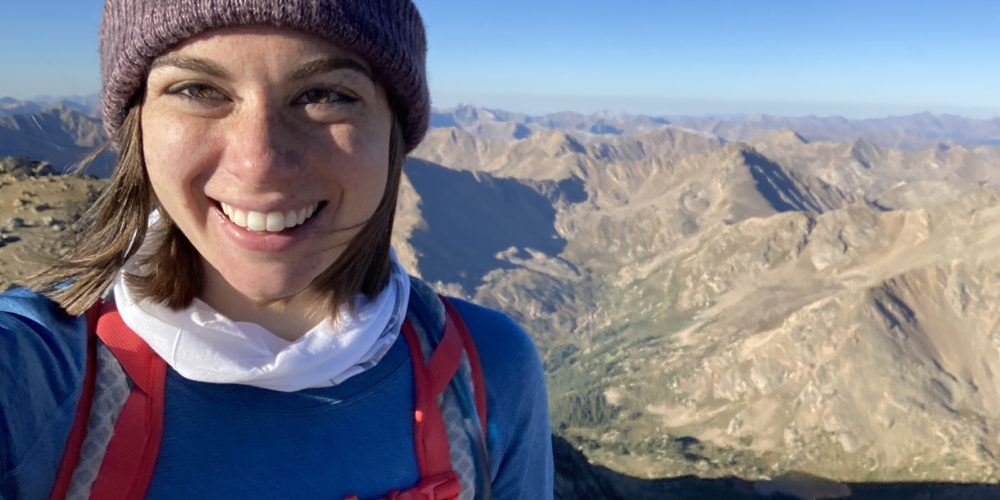Andrea Marks (’22) attended space camp three times as she was growing up. Today, working for Sierra Space after earning a master’s degree in Human Factors from Embry-Riddle in July, she is still living her childhood dream.
“My parents don’t ask me, ‘How was work?’ They say, ‘How was space camp today?’” Marks said in a recent interview. “I can’t believe I get paid to do what I do.”
Marks says she has always been interested in space, adding that she built model rockets as a child, and even her bat mitzvah had a space theme. She did take a detour, following in her doctor father’s and nurse mother’s footsteps, and worked in the medical devices field for nearly five years.
Off and on during that time, though, she applied for aerospace-related mechanical engineering jobs and carefully studied the credentials of engineers working in the aerospace industry. Many of the engineers who were doing jobs that attracted her had degrees in Human Factors, which really appealed to her.
“I knew I wanted something human focused, and I have always loved design,” she said. “I find Human Factors fascinating.”
Reviewing the courses at Embry-Riddle Worldwide, which she realized she could attend while continuing to work full-time, Marks had a revelation: “Oh, this is perfect.”
She started her master’s degree program in August 2020, focusing on space station design and long-term human habitation in space.
By the time she graduated in July, she had lined up a job at Sierra Space as the lead of crew systems for the company’s Large Integrated Flexible Environment (LIFE) Habitat, which launches on a rocket and inflates to a three-story structure that is 27 feet across and provides living and working space for a crew of four to 12. The habitat includes an “Astro Garden,” that provides fresh produce. Marks started work there on Aug. 22.
“I couldn’t have gotten here without that master’s,” Marks said. “It really helped me get this position and be really prepared going into this new field. I’m so thankful for where I’m at now. It’s so fun to be working on something I’m so passionate about.”
“Andrea’s dream of working and using the Master of Science in Human Factors in the space design realm came true, and that is nice to see,” said Dr. Paul Myers III, adjunct assistant professor in the Department of Behavioral and Social Sciences. “More importantly, Andrea is yet another example of an Embry-Riddle graduate who will have an impact on shaping the aviation and space future.”
Using Marks as an example, Myers had advice for prospective students.
“First, if you want to pursue a degree related to aviation or space applications, Embry-Riddle is the place to be,” he said. “Second, as you are taking courses, take the time to think about what dream job you would like to use your degree in and pursue that. … Take advantage of course instructors and others at the university who have experience in the field to gain knowledge of their lessons learned. As long as you are willing to put in the work, your instructors want nothing more than for you to succeed.”
